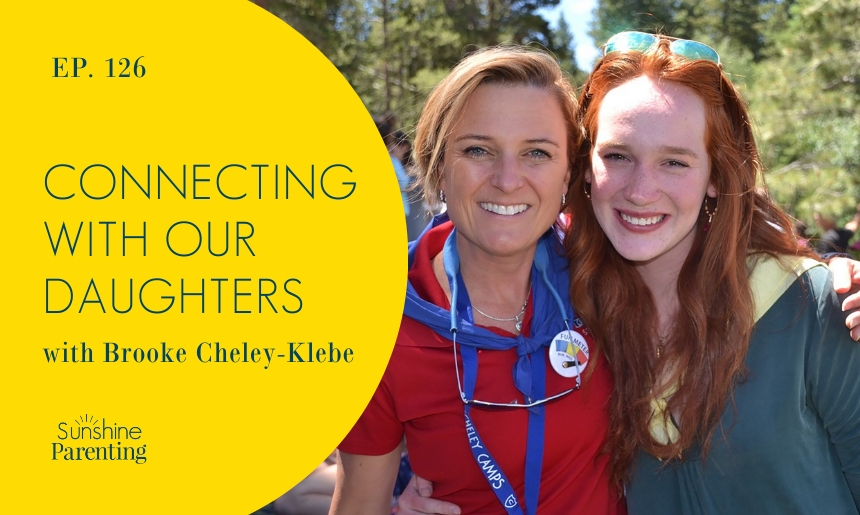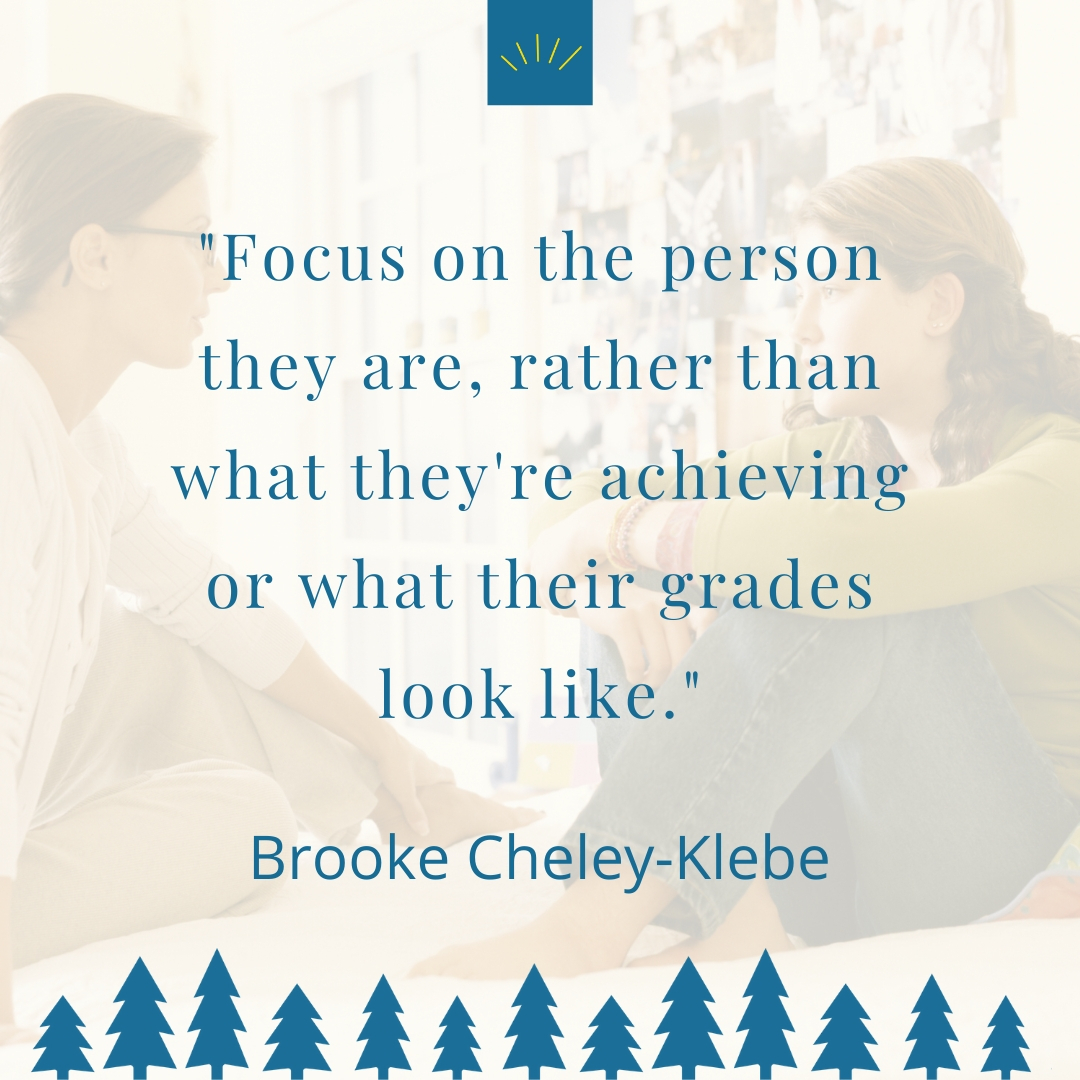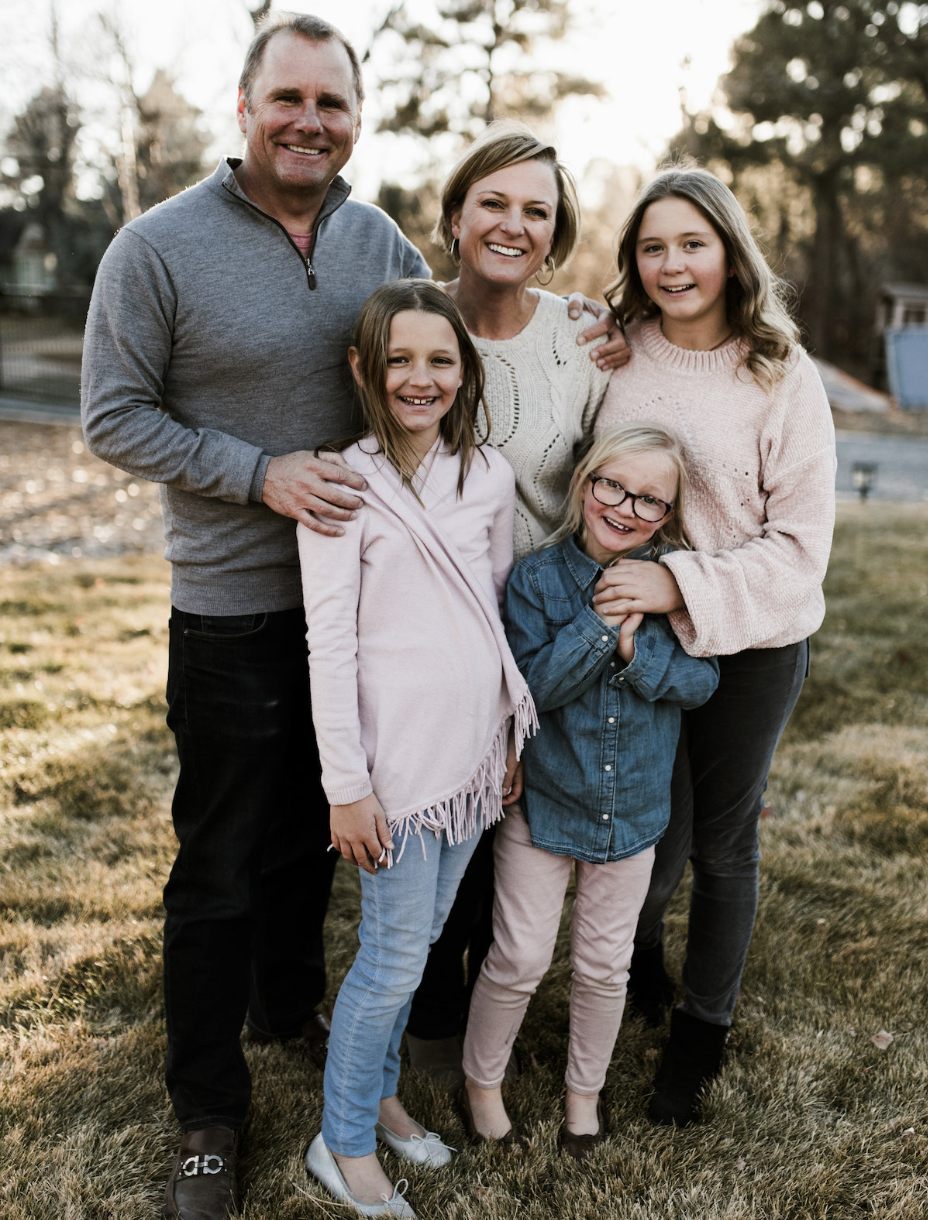
Download this episode. Show notes & links available here.
In this episode, I’m joined by my good friend and longtime camp industry colleague, Brooke Cheley-Klebe. Both of us have three daughters, so we’ve had a lot of discussion over the years about raising girls. In this episode, Brooke and I talk about how she stays close to her daughters, currently ages 14, 11, and 7. She has many insights both as a mom and from her 25 years working with campers and staff at Cheley Colorado Camps.
Parenting girls today is more challenging than ever. We can all use new ideas and insights, and Brooke has some simple strategies to stay close to her girls.

Big Ideas
- Parents and caregivers can help their daughters become thriving adults by focusing on our connection and relationship with our daughters.
- Show up in those little moments, such as having breakfast together, bedtime, driving in the car. Make eye contact, and connect.
- Rituals–especially around bedtime–are important anchors in your relationship with your children.
- Help girls understand that they’re enough just the way they are. It’s more important to be authentic than perfect.
- Teach them about practicing a growth mindset and model positive self-talk.
- In conversations, connect with fun questions that focus on their thoughts and feelings rather than their achievements, like grades and scores.
- Practices like meditation, setting intentions, being present and expressing gratitude, help to create an environment where kids, especially our daughters, thrive.
- Find hobbies, fun things to do so that our kids can see us enjoying life.
Quotes
Audrey: “It was really nice to have the experience of working with so many girls before I had my own to get to know them and see what they need.”
Brooke: “I try to show up in those little moments. I find that anchors are very important in my family life and that’s something that I learned from camp. I make them breakfast in the morning and we talk about the day. We have Alexa give us the five top news stories and when we’re not listening to that, we’re just really present with each other.”

Brooke: “I’m mindful of those small moments, giving them a really tight squeeze before they leave for the day. When they get in the car at the end of the day, I’m careful to not just start firing questions at them, but just kind of let them be.”
Brooke: “The evening is probably the most important time. At the end of the day, after dinner and everyone’s showered, I always take those moments to sit down and read with them, and even if it’s five minutes. It’s always just being present, looking into their eyeballs and not having my phone there. I do it with each one of them before they go to bed.”
Brooke: “Our lives are so crazy and there is so much input. I think it’s just important for people in general and for kids to have those things that they do every day, like rituals. I get up before everyone else so it’s quiet and I can have 10 minutes to meditate. I think if you ask my kids, they would know what their anchoring pieces are throughout the day and they know to expect them.”
Audrey: “Talking about those anchors, maybe parents if they didn’t have that themselves as a child, wouldn’t really think about that being an important thing. But at camp, it’s such an important part of our day to have our counselors individually say goodnight and ‘tuck-in’ each kid. That’s equally important at home.”
Audrey: “What a great thing for them to know that even if they’ve had a hard day, they know they’re going to have a little bit of time with mom at the end of the day, just to debrief and share, if they don’t have time before that.”
Brooke: “Focus on the person they are, rather than what they’re achieving or what their grades look like or how they are on the basketball court or soccer field.”

Brooke: “I do intentionally think about the things that I say to them. It’s ‘make sure you’re a good friend today’ or ‘make sure you’re focusing’ and not ‘do great on that test.'”
Brooke: “I’m careful of what I say about myself in not thinking that I am enough. I try to teach them that growth mindset of ‘I’m not great at this now but I’m learning and I make mistakes.'”
Brooke: “If I make a mistake or I feel like I didn’t handle something right, I will go back to my kids and say, ‘I’m so sorry. I did not handle that right.'”
Audrey: “At camp, we practice giving compliments about someone’s inner strengths as opposed to their outer appearance. As women and girls, we’re very much conditioned to compliment someone’s hair or clothing…however, if that’s all we give to our daughters we risk them hearing that what’s on the outside, what they look like, is most important.”
Audrey: “From what I understand, social media is having more of a negative impact on girls than on boys. So the longer you can delay the start of that, the better. It just adds this whole other layer of comparison. And it’s a very superficial platform.”
Brooke: “Having parameters at home is really important. So from the very beginning, the phones are not being charged in their rooms and they’re really not in their rooms. I try to lead by example and hot have it at the dinner table and I’m not on it a lot.”
Brooke: “If you don’t do anything else, make sure your kids are sleeping. Because if they’re sleeping with their phones in their room, they’re not going to sleep well.”
Audrey: “How important it is to just help our daughters feel happier and more energized by helping them discover activities, interests, things where they get in a state of flow, whether or not they are doing things that the other kids are doing.”
Brooke: “They each have their own little thing that is flow for them. I allow the time and space. I think that’s really important.”
Audrey: “I think that’s the main point–allowing your girls the opportunity to try different things, explore it, have some time to just be so that they find these activities they love.”
Audrey: “If you’re not sure what brings you flow, think back to when you were like 11, 12, 13. When you were that age, what did you enjoy doing during your free time? What would you choose to do when you had leisure time when you were that age?”
Audrey: “The best way we can raise kids who become thriving adults is by showing them what one looks like. And so as parents, one of the best ways we can ensure that our kids figure out all these little ways to live a better life is to practice them ourselves.”
About Brooke
Brooke Cheley-Klebe is mom to three daughters and has worked in the camp industry for more than two decades at Cheley Colorado Camps.
Happy Campers Camp Interview: Cheley Colorado Camps
More Post & Podcast Episodes about Raising Daughters
Helpful Books for Raising Daughters
Ep. 73: Under Pressure with Lisa Damour
The Wisdom of High School Girls
4 Friendship Concepts to Share with Girls
Ep. 12: Teaching Teen Girls to “Get Savvy”
Ep. 122: How to Connect with Your Teen
12 Tips for Happier, More Connected Families
Ep. 99: The Myth of the Perfect Girl


